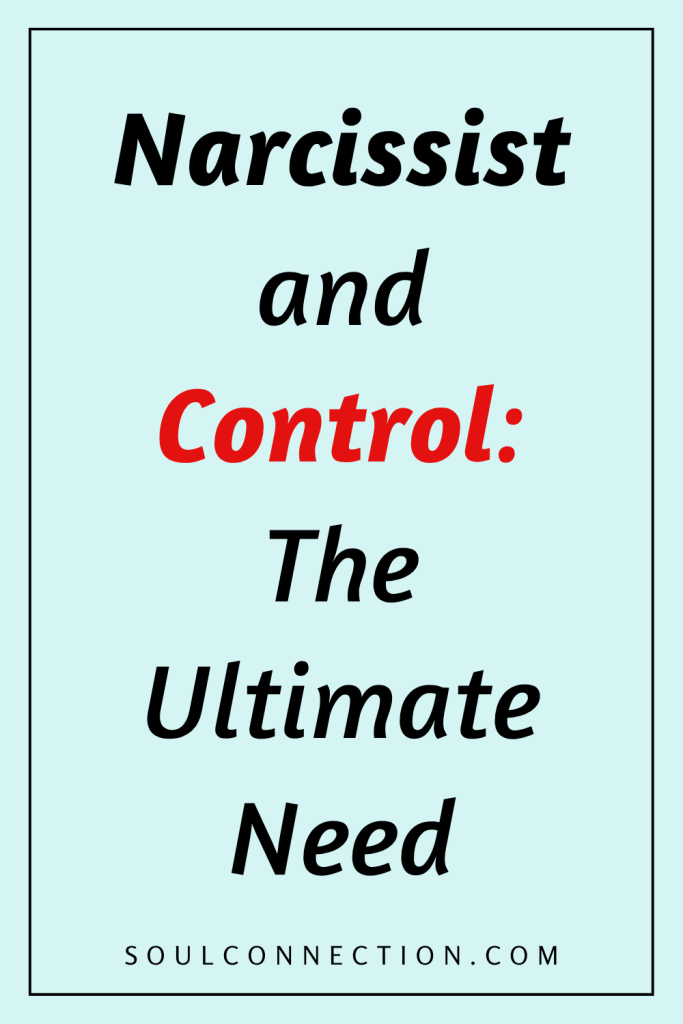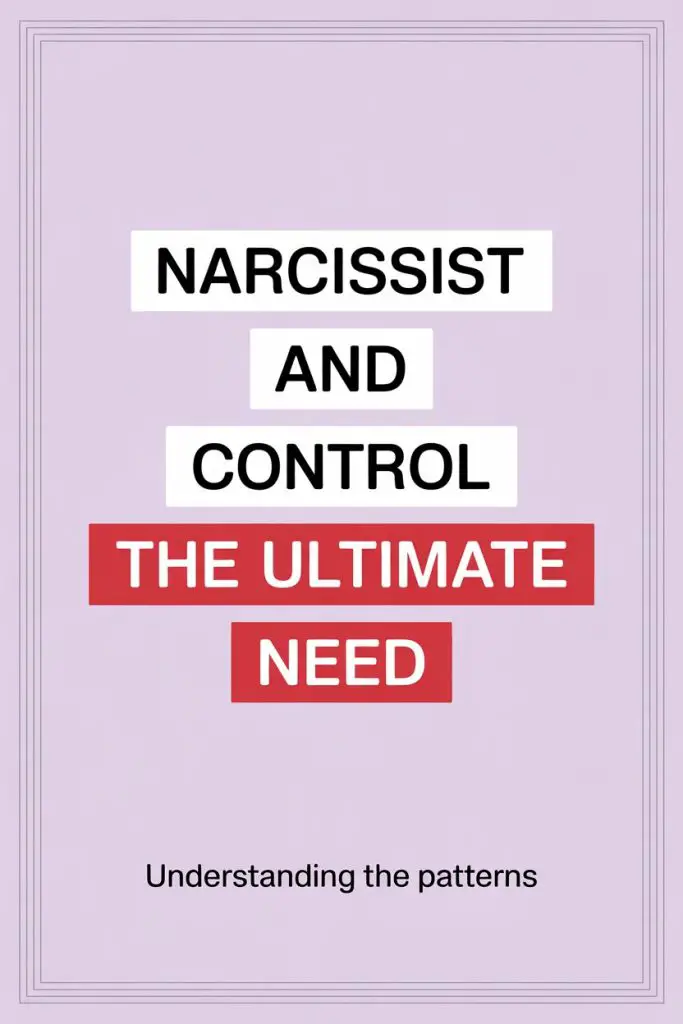Ever tried to play chess with someone who keeps moving the pieces when you look away? Welcome to life with a narcissist.
Control isn’t just an accessory for them—it’s the whole outfit, complete with a matching hat and shoes.
Peeling back the layers of why narcissists crave control can feel like unboxing a never-ending set of Russian dolls, each one with more attitude than the last.
But if you’re caught in the orbit of someone who seems to eat control for breakfast, there’s good news: it’s not your fault, you’re not losing your mind, and escape is possible (no GPS tracker required).
Let’s pull on these threads and see what unravels.
Why Control Is the Narcissist’s Favorite Snack
Narcissists have a need for control that borders on Olympic sport.
Sometimes it looks like micromanaging everything from your dinner order to your laughter volume at a party. Other times, it’s sneakier, like guilt-tripping you into feeling bad for having…well, feelings.
Control for a narcissist isn’t about power for power’s sake (well, maybe just a little). It’s more about managing their shaky self-worth.
Think of it as emotional duct tape holding together a fragile ego. If the people around them start acting independently, that tape starts to loosen.
Their motto? “If you love me, you’ll do exactly what I want, exactly how I want it. And if you don’t, clearly you’re the problem.”
Control or Love? Spoiler: It’s Not Two for the Price of One
Ever been told, “I only do this because I care”? Translation: “I love you, but only on my terms, and also I need to know your location at all times, don’t change your hair, and why are you breathing so loudly?”
It’s easy to confuse control with care, especially when the narcissist is laying it on thick.
They might disguise their control as concern—no one else will ever love you like I do!—but genuine love doesn’t require you to shrink yourself to fit someone else’s whims.
Healthy relationships are about trust and space.
If you feel like you’re living in a very polite prison, love might be waiting for you somewhere else. Possibly with less paperwork and more snacks.
How Narcissists Get Their Control Fix
The narcissist’s toolbox is like Mary Poppins’ bag, except instead of umbrellas and sugar, it’s filled with manipulation tactics:
- Gaslighting: Did you really leave the stove on, or are you just overreacting again? (Spoiler: you probably didn’t, and you’re not.)
- Silent treatments: The cold shoulder so frosty you’ll need a jumper.
- Jealousy games: Flirting with others just to see if you’ll beg for attention.
- Financial strings: Oh, you wanted to buy lunch today? Maybe next week, if you behave.
All roads, no matter how scenic, lead to the same destination: they’re in charge, and you’re permanently apologizing for existing.
Why It’s So Hard to Break Free
If it were as easy as spotting a high-vis vest at a music festival, none of us would ever fall for this nonsense. Trouble is, narcissists are brilliant at making you doubt your own instincts.
The relationship starts out with charm so thick you’d need a chainsaw to get through it. Compliments, gifts, grand declarations—who wouldn’t want that?
By the time the controlling behavior creeps in, you’re already invested. You might even start believing the script: “I’m the one who needs to be better.”
The longer you’re under their spell, the more you question your own judgment. Trust me, you’re not the one with the problem.
Early Red Flags That Scream “Control Freak”
Spotting a narcissist’s need for control early can save you a world of pain (and possibly a few years of therapy).
Look out for:
- Swift, intense displays of affection—rushing commitment like they’re late for a train.
- Interrogating your every move: “Who was that on your phone?” “Why did you talk to your coworker so long?”
- “Joking” insults that leave you feeling like you need a shower.
- Subtle or not-so-subtle pressure to ditch your friends or family.
If you find yourself constantly explaining, justifying, or apologizing for things that don’t need an apology—your spidey senses are working just fine.
Why Boundaries Make Narcissists Break Out in Hives
Set a boundary with a narcissist and watch the fireworks. Control is comfortable; boundaries are not.
Suddenly, you caring for yourself is an “attack.” How dare you want alone time, set limits, or—heaven forbid—maintain friendships outside their magical kingdom?
The narcissist’s response to boundaries ranges from fake tears to rage to elaborate guilt trips. It’s all a performance, designed to get you to back down.
Stand firm and watch them scramble to regain the upper hand.
When Control Turns Dangerous
Not every controlling partner is abusive, but the line can get blurry fast. Emotional manipulation can escalate to threats, financial sabotage, or physical intimidation.
If you’re feeling unsafe, trust your gut. Reach out to trusted friends, a support line, or consider professional help. No relationship is worth sacrificing your safety—or your sanity.
Reclaiming Your Sanity One Step at a Time
Ready to loosen the narcissist’s grip on your life? A few strategies to edge back into your own orbit:
- Document the crazy: Journaling isn’t just for angsty teens. Keeping a written record can help you see patterns and trust your own reality.
- Reconnect with your crew: Isolation fuels a narcissist’s power. Reaching out to old friends or family brings support, perspective, and sometimes cake.
- Set small boundaries: Start with little things—choose the restaurant, decide your own bedtime, reclaim your playlist.
- Don’t explain, just say no: Long explanations just give them more ammo. A simple “no, that doesn’t work for me” is plenty.
Change won’t be overnight. Small steps count.
Can Narcissists Ever Let Go of Control?
Hope springs eternal, right? While a magical epiphany isn’t impossible, narcissists rarely decide to relinquish control on their own.
The behavior is deeply rooted, often going back to childhood wounds and patterns.
Some seek therapy and make progress, but real change takes serious effort (and a therapist with the patience of a saint). If your happiness depends on them transforming into a Zen master, you may be in for a long wait.
The Appeal of Control for the Narcissist
What’s so irresistible about control? At its core, it’s about avoiding vulnerability. If they control the narrative, they don’t have to face uncomfortable truths about themselves—or let anyone else see the cracks in the armor.
It’s not an excuse, just an explanation. Their inability to tolerate uncertainty or compromise isn’t about you—it’s about them guarding their fragile self-image with all the subtlety of a toddler clinging to their favorite toy.
When You’re Co-Parenting With a Narcissist
The fun doesn’t stop after a breakup. Co-parenting with a narcissist means the control games continue—sometimes with children caught in the crossfire.
Keep communication businesslike. Stick to written messages, set firm boundaries, and document everything. Resist the urge to vent or explain—grey rock is your friend.
Most importantly, focus on protecting your children’s well-being and maintaining your own emotional stability. Parallel parenting (minimal direct communication and clear boundaries) can save a lot of drama.
Finding Humor in the Madness
If laughter is the best medicine, consider this your prescription. Narcissists take themselves seriously—very seriously. A little internal eye-rolling and gallows humor can be sanity-saving.
Swap stories with friends, find memes that hit a little too close to home, or write your own “Guide to Surviving a Control Freak” (bonus points for illustrations).
Small doses of levity can remind you that you’re still you, no matter how much someone tries to rewrite your script.
Looking Toward Freedom
Turns out, the best way to disappoint a narcissist is to stop playing their game. Control only works if you hand them the reins.
Start with one small act of rebellion today: say no to that movie you hate, call a friend you’ve missed, or just enjoy a cup of tea without asking permission.
You don’t have to orchestrate a dramatic exit or have all the answers right now. Sometimes, the bravest thing you can do is simply claim a little more of your own life, one choice at a time.
And if anyone tries to tell you otherwise, just remember: the only person who gets to control you is you.


